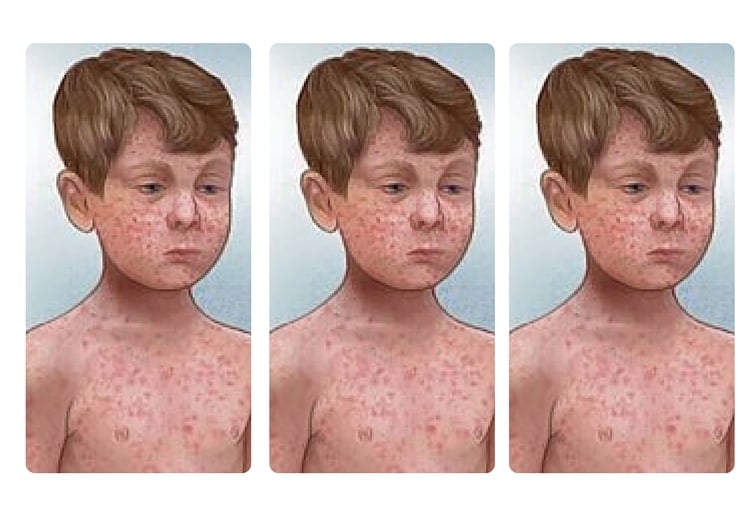A tourist with an infectious case of measles has visited a number of travel hot-spots in central Sydney and Melboure, prompting health experts to warn the public to be on alert for symptoms.
NSW Health says from July 15 to July 19 the young adult visited many of Sydney’s highlights – including the Queen Victoria Building, Pitt Street Mall and Circular Quay using public transport – before they were diagnosed and isolated.
It is believed the traveller contracted the infection in their home country before flying into Sydney on a Virgin Australia flight from Melbourne, reports 9 News.
NSW Health communicable diseases director Vicky Sheppeard urged residents and visitors to the city to be on alert for measles symptoms – especially if they’ve not been vaccinated.
“Measles is highly infectious and is spread through the air when an infected person coughs or sneezes,” she said in a statement on Thursday.
“Symptoms to watch include fever, sore eyes and a cough followed three or four days later by a red, blotchy rash spreading from the head and neck to the rest of the body.”
Meanwhile in Victoria
Victoria Health confirm a case of measles in a person who was infectious whilst in a number of locations in Melbourne between 12 – 15 July, including in the Tullamarine Airport and on a domestic flight to Sydney.
Known exposure sites include:
Wednesday 12 July:
Sofitel Hotel (Collins Street)
Parliament House
St Patricks Cathedral
Trams in the free tram zone
Thursday 13 July:
Sofitel Hotel
Train from city to Brighton
Brighton Beach
Friday 14 July:
Sofitel Hotel
Trams in the free tram zone
Queen Victoria Market (Elizabeth Street)
Saturday 15 July:
Sofitel Hotel (Collins Street)
Taxi to Tullamarine Airport
Tullamarine Airport
Virgin Airlines flight VA 841 to Sydney.
The case is an international tourist and the illness was likely acquired in Indonesia.
Who is at risk? via Vic Health
Children or adults born during or since 1966 who do not have documented evidence of receiving two doses of a measles-containing vaccine or do not have documented evidence of immunity are considered to be susceptible to measles. People who are immunocompromised are also at risk.
Symptoms and transmission
Clinical features of measles include prodromal fever, a cough, conjunctivitis and coryza. Individuals, especially children, are typically unwell.
The most important clinical predictors are the following features:
generalised, maculopapular rash, usually lasting three or more days, AND
fever (at least 38°C, if measured) present at the time of rash onset, AND
cough, coryza or conjunctivitis.
Measles is transmitted by airborne droplets and direct contact with discharges from respiratory mucous membranes of infected persons and less commonly, by articles freshly soiled with nose and throat secretions.
Measles is highly infectious and can persist in the environment for up to two hours.
The incubation period is variable and averages 10 days (range: 7 -18 days) from exposure to the onset of fever, with an average of 14 days from exposure to the onset of rash. The infectious period of patients with measles is roughly five days before, to four days after, the appearance of the rash.
If you suspect any symptoms please visit your doctor.
Share your comments below.




















-

-
-
mom94125 said
- 02 Sep 2017
-

-
-
country chick said
- 02 Aug 2017
-

-
-
BellaB said
- 23 Jul 2017
-

-
-
taynik46 said
- 23 Jul 2017
-

-
-
mom93821 said
- 23 Jul 2017
-

-
-
june11 said
- 22 Jul 2017
-

-
-
mom206279 said
- 22 Jul 2017
-

-
-
Ellen said
- 22 Jul 2017

-

-
-
mom112217 said
- 21 Jul 2017
-

-
-
mom90758 said
- 21 Jul 2017
Post a comment10:50 pm
8:28 am
7:11 pm
5:46 pm
9:34 am
5:25 pm
9:35 am
4:27 am
6:28 pm
5:37 pm
To post a review/comment please join us or login so we can allocate your points.